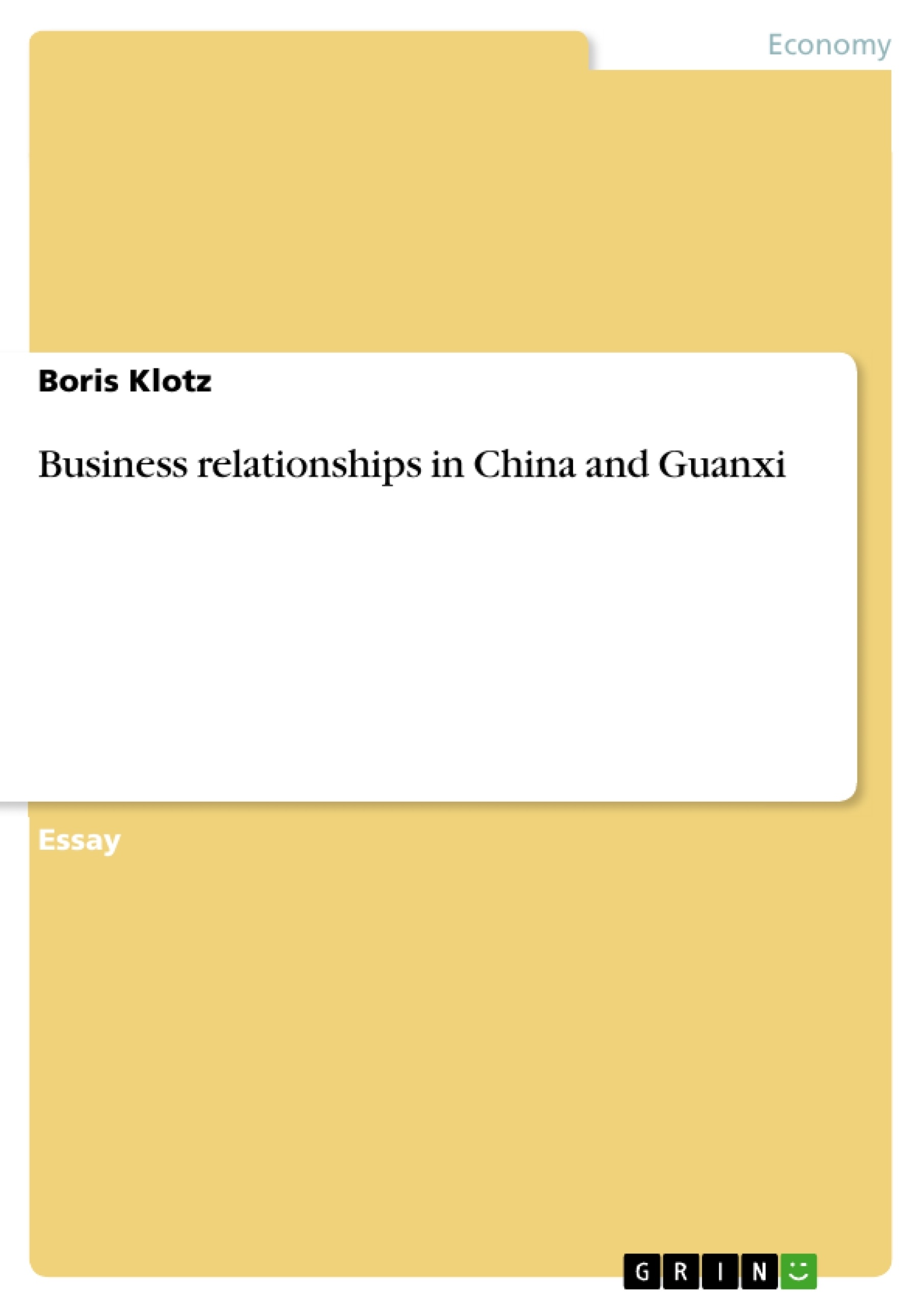The Chinese market becomes more and more attractive for Western companies. Thats what everybody nows. But only a few know how diffcult it really can be to do business in China. The business transactions in this country are far more relianced on close personal relationships. "Guanxi" is everywhere and a important part of a succesfull start in China. This work will explain what's behind this mysterious word, how to build it and how to succesfully use it in the Chinese business environment.
Table of Contents
- Introduction
- Guanxi
- Types of Guanxi
- Reasons for Guanxi
- How to build Guanxi
- Results
- References
- Books
- Websites
- Articles
Objectives and Key Themes
This paper aims to discuss the importance of interpersonal relationships in Chinese business, focusing on the concept of "Guanxi" as a key driver for success. It examines the multifaceted nature of Guanxi, exploring its different types and the reasons behind its significance in Chinese society. The paper also highlights the role of trust, face-saving, and reciprocal favor in cultivating and maintaining successful business relationships within the Chinese context.
- The importance of personal relationships in Chinese business
- The concept of Guanxi and its significance in Chinese society
- The different types of Guanxi: expressive tie, mixed tie, and instrumental tie
- The role of trust, face-saving, and reciprocal favor in cultivating and maintaining business relationships
- Cultural differences between Western and Chinese business practices
Chapter Summaries
The introduction highlights the challenges of intercultural communication and the importance of understanding cultural nuances in business interactions. It presents a real-life example of a Western business associate failing to understand Chinese cultural norms, demonstrating the consequences of cultural insensitivity.
The section on Guanxi delves into the meaning and significance of this crucial concept in Chinese society. It defines Guanxi as a network of social relationships characterized by mutual obligations and understanding, emphasizing its importance in both personal and business contexts. The paper further explores the two levels of Guanxi: interpersonal and inter-organizational, highlighting the cultural perspectives that underpin these differences.
The section on types of Guanxi differentiates between three types: expressive tie, mixed tie, and instrumental tie. Expressive ties are long-lasting and based on egalitarian norms, while instrumental ties are temporary and transactional. Mixed ties, encompassing close business relationships, fall somewhere in between.
The section on reasons for Guanxi explores the underlying cultural and historical influences that contribute to the significance of Guanxi in Chinese society. The paper references Confucianism's five cardinal role relations as a potential source of influence, highlighting the emphasis on relationships and societal harmony.
Keywords
Key terms and concepts include: Guanxi, personal relationships, Chinese business, intercultural communication, trust, face-saving, reciprocal favor, Mianzi, Renqing, expressive tie, mixed tie, instrumental tie, Confucianism, cultural differences, Western business practices.
- Citar trabajo
- Boris Klotz (Autor), 2006, Business relationships in China and Guanxi, Múnich, GRIN Verlag, https://www.grin.com/document/70291




